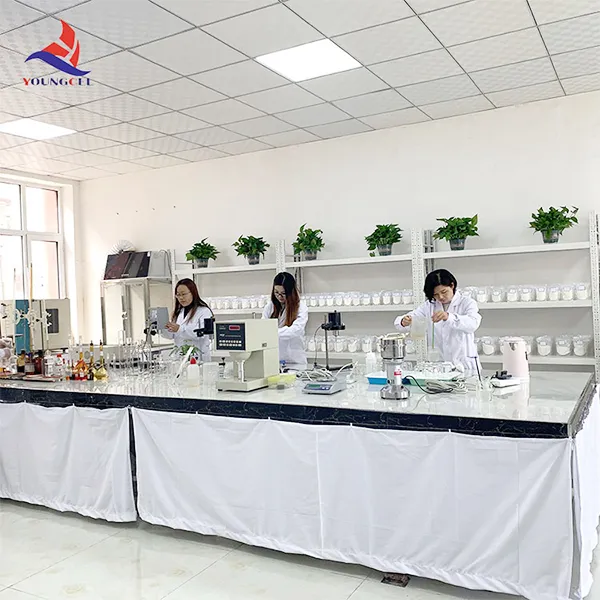The Role of Chemical Thickening Agents in Industry and Everyday Life
Chemical thickening agents play a crucial role in various industries, from food production to pharmaceuticals, cosmetics, and beyond. These substances are designed to increase the viscosity of liquids, allowing for better texture, stability, and overall product performance. Understanding the properties and applications of thickening agents can provide insights into their significance in our daily lives and industrial processes.
The Role of Chemical Thickening Agents in Industry and Everyday Life
In the realm of pharmaceuticals, thickening agents are essential for formulating various medications. Syrups, creams, and gels often require specific viscosity levels to ensure proper dosage delivery and stability. Hydroxypropyl methylcellulose (HPMC) and carboxymethyl cellulose (CMC) are widely used in pharmaceutical formulations for their thickening properties. By optimizing the viscosity, these agents improve the bioavailability of active ingredients, ensuring that medications are effective and safe for patients.
chemical thickening agent

Cosmetic and personal care products also heavily rely on thickening agents. Lotions, shampoos, and conditioners often incorporate these agents to attain a desirable texture and aesthetic appeal. For example, polyacrylamide and cetyl alcohol are commonly used to thicken formulations, providing a luxurious feel and enhancing user experience. These agents not only improve the product's application but also contribute to its stability and shelf life, ensuring that consumers receive high-quality products.
In addition to these traditional applications, chemical thickening agents are being explored in innovative fields such as 3D printing and construction. In 3D printing, materials with specific viscosity properties are essential for achieving accurate and detailed prints. Thickening agents can be tailored to adjust the flow of printing materials, allowing for greater precision and complexity in design. Similarly, in the construction industry, thickening agents are utilized in adhesives, paints, and coatings to enhance performance and durability.
While thickening agents offer numerous benefits, it is essential to consider their safety and environmental impact. Many thickening agents are derived from natural sources, such as plants and seaweeds, making them biodegradable and less harmful to the environment. However, synthetic thickening agents may pose potential health risks if not used correctly. Regulatory bodies, such as the FDA and EFSA, evaluate these substances to ensure they are safe for consumer use, highlighting the importance of adhering to guidelines and regulations in their application.
In conclusion, chemical thickening agents are vital components across various industries. Their ability to modify viscosity and improve product performance makes them indispensable in food production, pharmaceuticals, cosmetics, and even emerging technologies. As industries continue to innovate and adapt to consumer demands, the role of thickening agents will likely expand, underscoring the need for ongoing research and development in this field. Understanding these substances and their applications not only enhances our appreciation of everyday products but also highlights the intricate connections between chemistry and industry.
-
Premium Detergent Grade HPMC Hydroxypropyl Methylcellulose: Superior Thickening & StabilityNewsAug.31,2025
-
HEC 100000 Hydroxyethylcellulose for Paint | Superior ThickeningNewsAug.30,2025
-
Wall Putty Rdp Powder Packaging DesignNewsAug.29,2025
-
Introduction to Hpmc Hydroxypropyl Methyl CellulosNewsAug.29,2025
-
Hpmc Industri Grade IntegrationNewsAug.29,2025
-
How to Choose the Right Construction AdhesiveNewsAug.29,2025




